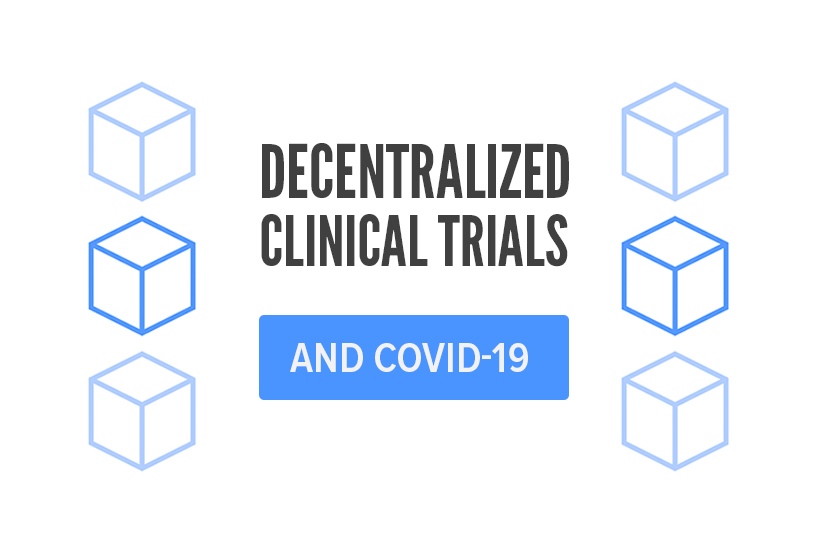Earlier this year we talked about the challenges of conducting clinical research during COVID-19. The COVID-19 pandemic has brought us to a “New Normal” situation in clinical research, and we (as a contract research organization) have adapted to accommodate current health guidelines. Over the last 17 months we have seen a shift, globally, to working remotely. In the clinicals space, we have also had to accommodate a remote model, referred to as “decentralized clinical trials”.
With decentralized clinical trials, participants can complete some (or all) aspects of a clinical trial from their home without needing to travel onsite to the research facility. The clinical trial components can be conducted using procedures and technologies that make it possible to complete them virtually. Our goal is to maintain participant compliance without compromising GCP (Good Clinical Practice), clinical trial integrity or quality.
Decentralized clinical trials allow additional benefits, such as:

- A more streamlined experience for participants (i.e., reduction in travel time, convenience to complete study activities from home);
- Participant recruitment from broader geographic area.
- Flexibility in the timing of completing certain study tasks (thereby allowing for improved recruitment metrics);
- Helping to minimize the spread of COVID-19 by reducing inter-personal contacts at in-person visits.
In order to adopt to the decentralized clinical trial model, we have incorporated key changes in our clinical trial management practices, including:
- The methods we use for participant data collection;
- The type of data we collect from participants; and
- The need to follow current COVID-19 related guidance from local health authorities for data collection procedures.
To efficiently manage remote-based clinical trials, a highly efficient and appropriate electronic platform for electronic data capture (EDC) is needed.
Conducting clinical trials using EDC allows enormous benefits, as follows:

- Data can be reported in real-time;
- Allows logic checks to identify discrepancies during data entry;
- Queries can be sent immediately with minimal turnaround times for data clarification;
- An auditable trail for data entry ensures data integrity;
- Fewer transcription errors and illegible data issues;
- Reduces paper management time and requires less physical storage space; and
- Shorter patient recruitment times, fewer site visits, faster data entry, reduction of printing costs, and remote monitoring leads to the clinical trial cost reduction.
Source’s Clinical Trials Team have prioritized the development of our strategies for conducting clinical trials using a decentralized model by moving to an e-platform (wherever possible) for study components. For study tasks which must be done in person, we have acquired a new clinical trials site in Winnipeg (Manitoba) with hospital grade ventilation, where we are following current health guidelines for conducting clinical research. We are pleased to have continued to run clinical trials using a hybrid decentralized / in-person model throughout the pandemic.
If you are interested in learning more about decentralized clinical trials, reach out to Source today for more information!




